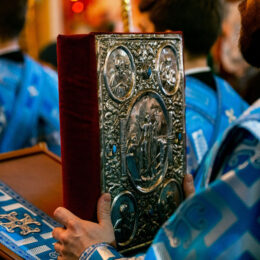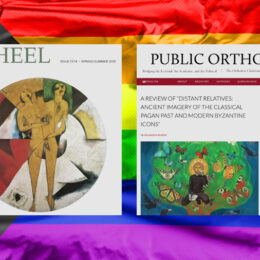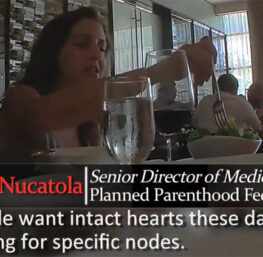OrthodoxNet.com | Fr. Alexander Schmemann | September 26, 1966
WHAT DO WE MEAN when we speak of the Orthodox theological task in America today? It is proper to begin with this question because the title of my paper may seem to suggest a theological orientation of which Orthodoxy is suspicious, but which seems to predominate in the West today. It is the reduction of theology to a given “situation” or “age,” a stress on “relevance” understood almost exclusively as a dependence of theology, its task, method and language on the “modern man” and his specifically modern “needs.”
From the beginning, therefore, we must emphasize that Orthodoxy rejects such a reduction of theology, whose first and eternal tasks is to search for Truth, not for relevance, for words “adequate to God” (theoprepeis logoi), not to man. Theology is truly relevant because it is truly Christian when it remains a scandal for the Jews, foolishness for the Greeks and is at odds with this world and its passing “cultures” and “modernities.”
This does not mean, however, that theology operates in a cultural vacuum. For it is one thing to depend on the world and quite another to be related to it. If the first attitude, the acceptance of the world as the only criterion of theology, is to be rejected, the second (which, in the last analysis, is but the basic Christian concern for the world and its salvation), is the very raison d’etre of theology. In this sense, all genuine theology has always been pastoral, missionary and prophetic, and whenever it lost these dimensions, it became a mere intellectual game justly ignored by the “real” Church.
The task of theology at any given moment is necessarily determined by the needs of the Church, and the first task of the theologian is always to discern and to accept these needs, to become aware of what the Chuch expects from him.
As a small group of Orthodox theologians living and working in the West, far from the ancient and “organically” Orthodox worlds and cultures, we are justified therefore in asking this preliminary question: what are the needs of the Church to which we must respond and around which we are to organize and plan our theological work? How are we to obey here, in America, the eternal demands, pastoral, missionary and prophetic, of Orthodox theology? This paper is a brief attempt to inaugurate a common search for a common answer.
. . . more




Thanks for posting this very honest and interesting piece. I read it, but can tell that it deserves more than one reading. For those who object to my deficient understanding of Orthodoxy — I’m trying.
Jim, if it helps any, I have read it at least 4-5 times myself over the years. I always seem to find yet another point or better understand another issue. I believe this is for two reasons: (1) it is indeed a very well thought out and powerful piece that has at its foundation Fr. Schmemann many years of experience, education, and wisdom and (2) every time I read it I was at a different stage of my life and approached it with another level of understanding, knowledge, and experience. I firmly believe that when I will read it again in the future more insights may become evident.
St. Athanasius 9:57 “But for the searching and right understaning of the Scriptures there is need of a good life and a pure soul, and for Christian virtue to guide the mind to grasp, so far as human nature can, the truth concerning God the Word. One cannot possibly understand the teaching of the saints unless one has a pure mind and is trying to imitate their life”
We need our theologians to escape from the mental institutions and return to the desert.
Mr. Banescu,
Even though my family has officially left the OCA (now part of a non-ethnic Greek parish of all things – I would not have believed it myself not all that long ago) I still follow the news of the crises, and pray daily for the bishops, priests, and faithful of the OCA. I have noticed your latest comments at the news site and find them spot on…
Christopher, Thanks for your kind words and support. Yes, the situation has steadily deteriorated over the last 2 years and more and more priests and laymen are beginning to realize that this spiritual battle for the heart and soul of the OCA is going to be a lot tougher than we ever imagined. Sadly, the unethical conduct, the continuing hiding of the truth, and an entreched culture of self-dealing, unaccountability, deceit and persecution of the messengers is continuing to devastate the flock, drown out the missionary, pastoral, and evangelistic goals of the OCA and seriously dim the “Light to the World” our Church is supposed to be.
BTW, Just “Chris” or “ChrisB” (to maybe distinguish it from your name) is more than ok. 🙂 I’m not big on formalities. 🙂
Christopher,
Did I misread your post? Are you no longer Orthodox or are you no longer OCA? I am a bit confused.
Regards,
Christopher, et. al. A quote from Fr. Stehpen Freeman’s blog that seems to address both the crises in the OCA, IMO, and the continued denseness of those who ask the same questions over and over:
We rely on our bishops and priests to know God, when their actions indicate they have forsaken such knowledge, silence is not often an option, but what we speak must not be spoken in fear.
I have come to the conclusion that those who do not know God outside the Church and do not want to know God, should not be answered because they cannot comprehend the answer. Often they refuse to comprehend that they have no foundation for comprehension. There is a reason why the early Church did not catechize much until after Baptism and Christmation.
note 6
I am now part of a start-up GOARCH (i.e. Greek Orthodox Archdiocese of America) parish, so still Orthodox. I have not really seriously considered leaving Orthodoxy even when I (and my wife) were quite disheartened with the ethnicity, etc. That said, if I ever did, I can only see seeking shelter in a “continuing Anglican” or similar church, until I found a suitable Orthodox church. To be honest, the main reason we left the OCA is the lack of courage on the part of my formal parish in confronting this situation. It does not help were part of the DOS (Bishop Dimitri is part of the problem).
note 7
Yes. I think the problem in the OCA is certain habits of heart and mind among the Bishops (and let’s be honest, a significant part of the clergy/laity as well) that have not really been given over to Christ. That said, certainly things can be turned around in the OCA, but not in the short term, as they do have to confront the Gospel a little more often than those outside the Church. For me, it came down to the question as to whether instead of a few million $dollars$, what if it was the physical and spiritual health of our children (here I am thinking of the RC pedophile scandal). I think the reaction would have been the same – all concern about “the good of the church”, little competence or even realization of the evil done for “the good of the church”, and a “scandal” that goes on year after year while the bishops plead the people put it behind them for “unity” and all that. That said, my formal parish and all the OCA is defiantly in my prayers.
Christopher,
I am sorry to hear of the fall out but glad to know you are sticking to your beliefs. I hope you enjoy the GOARCH church. My experience with Greek Orthodox people was ok but I didn’t feel I fit in. If you are still looking; have you looked into St. Alexander Nevsky Church, it is in Richmond, Maine (though I don’t know where you are in Maine so it may not be a convenient option).
I looked on the web for an Antioch parish in Maine and couldn’t find one. I have visited one several times and never felt out of place or unwelcome, even though I am not Arabic or Orthodox. The service and people were great.
Best of luck to you and your family,
Dear Christopher,
While I can, in part, relate to your questions of the changing of congreations/archdiocese and to some of the problems of ethnicity; take heart, as long as your priest and bishops and you remain in the thological pursuit of the knowledge of God through the patristic Orthodox traditions you will recover.
I transfered from Anglican high church to an Antiochian congreation, married in a Russian church help found a new congreation of the same church. When we moved to Houston we continued in a Antiochain church. We helped found a Romaian parish there. We moved to Germany and now attend a Romaian parish.
Visiting the old wooden churches in the Romaian north and their monistaries gave me a broader view of the Church Universial.
I have no knowledge of the OCA’s problems.
But, take heart!
Sincerely yours,
J R Dittbrenner
Mr. Dittbrenner,
What is an Anglican High Church? Pardon my ignorance, but I don’t know these things. Is it Orthodox?
Regards,
Cepik #11
High Church and Orthodox.
The term goes back to the founding the Anglican Cmmunion. The expressions ‘high church’ or Anglo-Catholic were used to differentiate from the followers of the Oxford Movement, the Westerminster Confession-Puritans and the followers of Rome-Anglo-Catholicism.
The High Church was sacerdotal and liturgical. This could also be discerned in the architecture both from the inside and outside. The gradual breakdown came with the introduction of the new Book of Common Prayer in the 1970s.
Many of the so called ‘Main Line Churches’ in America today will still use the high church term or now the term orthodox to distinguish from the ‘Low Church’ or ‘evangelical movements.
Orthodox-right belief as opposed to hetrodox-different belief or those that do not follow the Councils and the patristic traditions after the Orthodox schism with Rome.
Sincerely yours,
J R Dittbrenner
Cepik,
Thanks for the tip but I live in North Carolina. Won’t go any farther north than this, unless global warming kicks in with a vengeance and heats up New England. 😉 Genuine thanks for your efforts however…
Christopher,
You are sincerely welcome, however now I feel a little silly. I thought I had read you were from Maine, (I am not sure where I thought I read that). Anyways, NC would be much more pleasant weather wise.
Best wishes to you and your family,